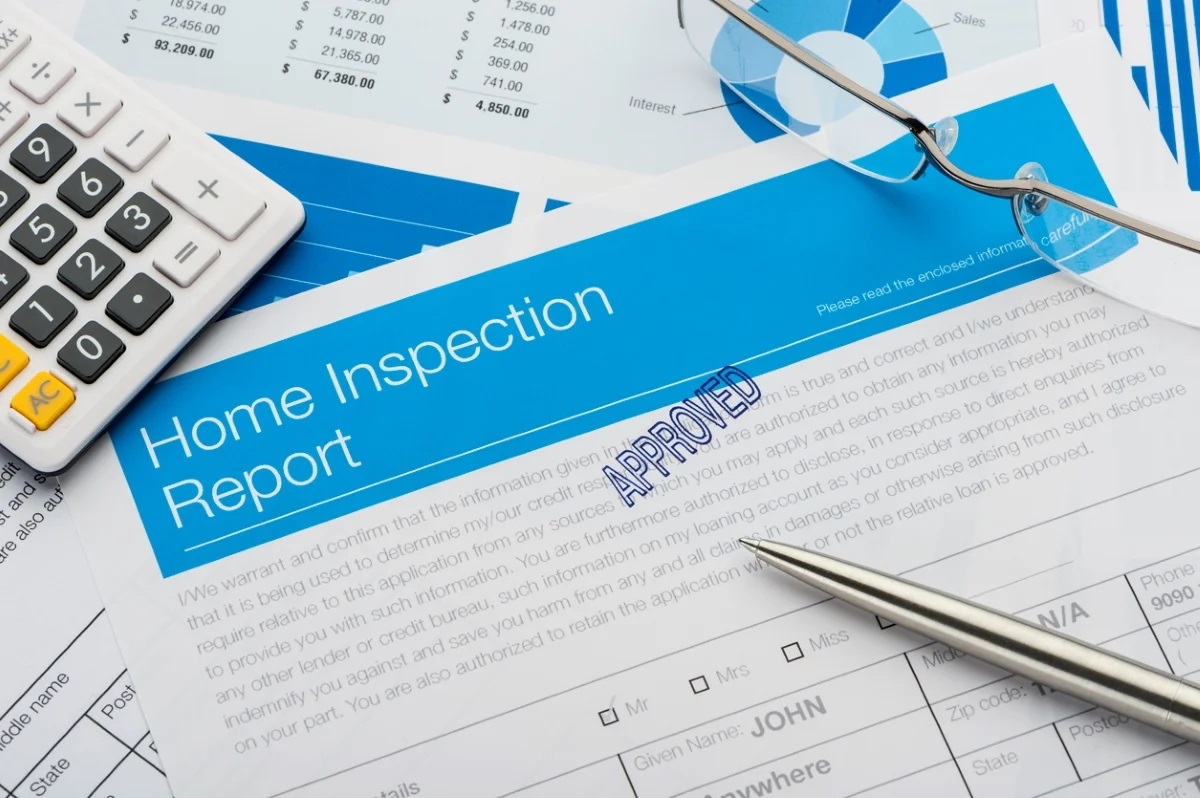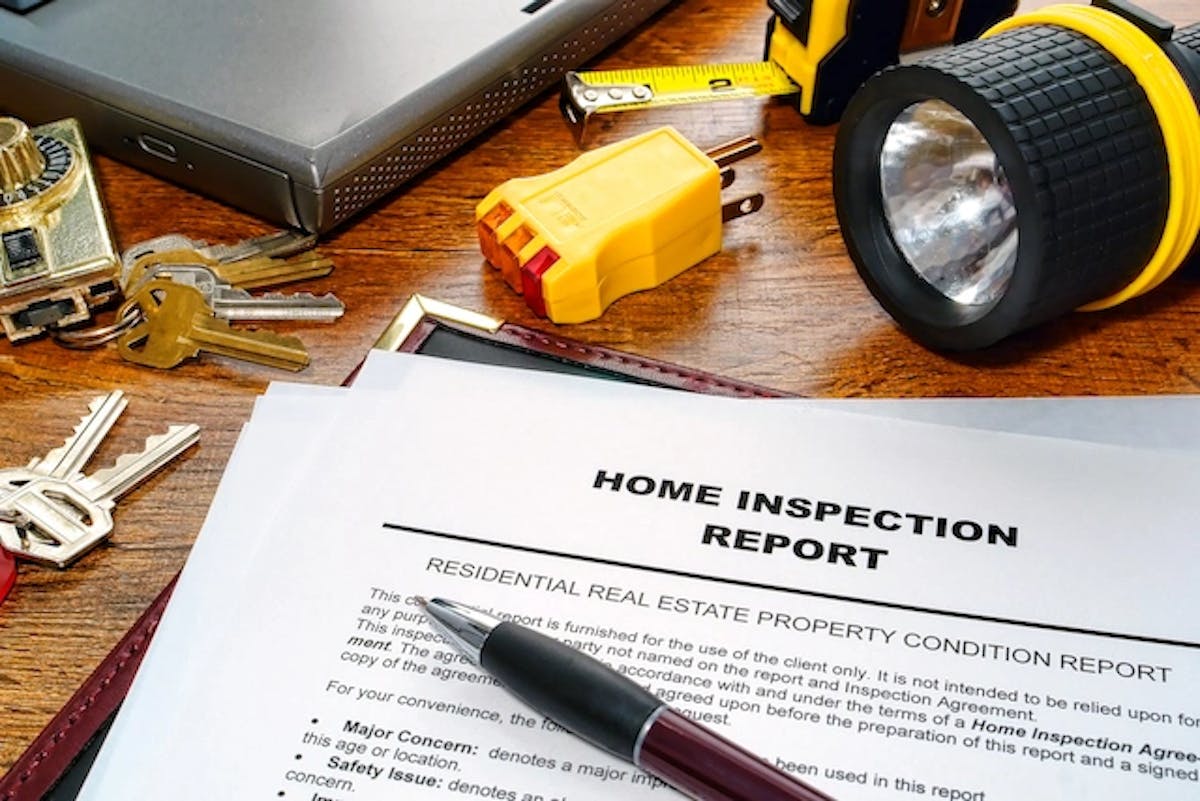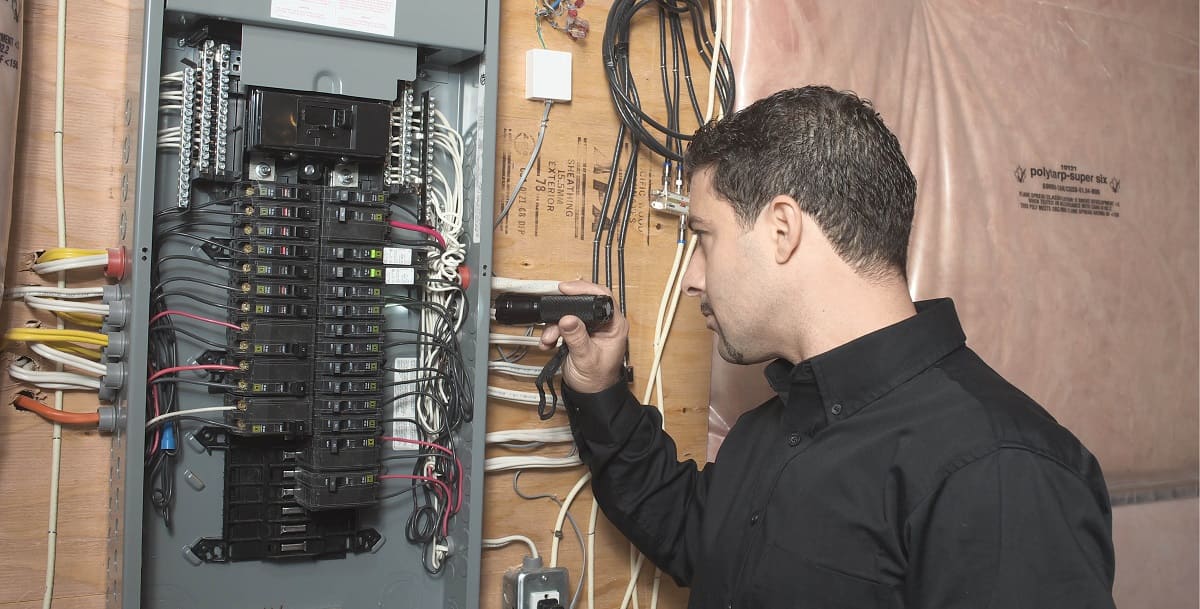Home>Home Maintenance>What Does The Buyer’s Agent Do After Receiving The Inspection Report?


Home Maintenance
What Does The Buyer’s Agent Do After Receiving The Inspection Report?
Modified: March 6, 2024
Learn how a buyer's agent handles the inspection report and addresses home maintenance concerns during the home buying process.
(Many of the links in this article redirect to a specific reviewed product. Your purchase of these products through affiliate links helps to generate commission for Storables.com, at no extra cost. Learn more)
Introduction
When it comes to buying a new home, one of the most crucial steps in the process is the home inspection. A home inspection report is a detailed document that outlines the current condition of the property, including any potential issues or areas of concern. Once the buyer’s agent receives this inspection report, their role becomes even more critical as they navigate through the next steps of the home buying process.
The buyer’s agent acts as the advocate for the homebuyer, ensuring that their best interests are represented throughout the entire transaction. After receiving the inspection report, the buyer’s agent plays a vital role in reviewing, analyzing, and strategizing on how to proceed. Let’s delve into the specific tasks performed by the buyer’s agent after receiving the inspection report.
Key Takeaways:
- Buyer’s agents review inspection reports, identify major issues, and consult with buyers to make informed decisions about home purchases. They negotiate repairs with sellers and ensure a smooth closing process.
- Buyer’s agents play a crucial role in advocating for buyers, coordinating repairs, and finalizing home purchases. Their expertise and communication skills help ensure a positive buying experience.
Reviewing the Inspection Report
Upon receiving the inspection report, the first task of the buyer’s agent is to thoroughly review it. This involves carefully examining each section of the report, which typically includes details about the property’s structure, systems, and potential areas of concern. The buyer’s agent will pay close attention to any major issues that may impact the value or safety of the property.
During the review process, the buyer’s agent will also take note of any recommended repairs or further inspections that are suggested in the report. This information will help guide the next steps and determine if any additional specialists or experts need to be consulted.
Furthermore, the buyer’s agent will assess the overall impact of the inspection report on the buyer’s purchasing decision. If the report reveals significant issues, the buyer’s agent will need to carefully consider the options available and discuss them with the buyer.
It’s important to note that the buyer’s agent is not an expert in home inspections or structural issues. However, they possess the knowledge and experience to interpret the report and provide valuable advice to the buyer.
The buyer’s agent will also pay attention to any time-sensitive repairs or issues that need immediate attention. This will help ensure that the buyer is aware of any potential risks or costs associated with the purchase of the property.
Identifying Major Issues
One of the key responsibilities of the buyer’s agent after reviewing the inspection report is to identify any major issues that could significantly impact the value or safety of the property. Major issues can range from structural concerns to electrical or plumbing problems that require immediate attention.
The buyer’s agent will carefully assess the severity and urgency of each identified issue. They will consider whether it’s a safety concern, a code violation, or a potential deal-breaker for the buyer. This evaluation helps determine the appropriate course of action moving forward.
If the inspection report reveals major issues that the buyer was not aware of, the buyer’s agent will discuss them with the buyer, ensuring they have a clear understanding of the potential implications on the purchase. This allows the buyer to make an informed decision on how they wish to proceed.
In some cases, the buyer’s agent may recommend seeking professional opinions or conducting further inspections from specialists. This is especially true when dealing with complex issues that require the expertise of licensed contractors or engineers. By engaging the necessary professionals, the buyer can obtain accurate information and estimates for any necessary repairs or renovations.
Identifying major issues and their potential impact on the property’s value is crucial for the buyer’s agent. This information serves as the basis for further negotiations and discussions with the seller’s agent regarding repairs or potential credits.
Consulting with the Buyer
After identifying the major issues in the inspection report, the buyer’s agent will consult with the buyer to discuss the findings and determine the best course of action. This consultation is an essential step in helping the buyer make informed decisions regarding their potential purchase.
The buyer’s agent will explain the significance of each major issue identified in the inspection report, providing a clear understanding of the implications on the property. They will answer any questions or concerns the buyer may have and provide expert advice based on their knowledge and experience in the real estate industry.
During the consultation, the buyer’s agent will also assess the buyer’s comfort level with the identified issues and their willingness to move forward with the transaction. The buyer may have different preferences and priorities when it comes to addressing repairs or negotiating with the seller. The buyer’s agent will take these factors into consideration while guiding the buyer through the decision-making process.
Based on the consultation, the buyer’s agent will help the buyer determine their options, whether it’s requesting repairs from the seller, negotiating for price reductions, or even walking away from the deal if the issues are too severe.
Moreover, the buyer’s agent will advise the buyer on the potential costs associated with addressing the identified issues. This may include obtaining quotes from contractors or specialists, which can help the buyer make an informed decision on whether to proceed with the purchase.
Open communication and transparency between the buyer’s agent and the buyer are crucial during this stage. The buyer’s agent will ensure that the buyer fully understands their options and the potential consequences of each decision made.
Recommending Further Inspections or Specialists
In some cases, the inspection report may reveal issues that require further investigation or specialized expertise. As the buyer’s agent, it is your responsibility to recommend additional inspections or consult with specialists to ensure a comprehensive understanding of the property’s condition.
Based on the findings of the inspection report, you may advise the buyer to seek the assistance of specialized professionals. For example, if there are concerns about the foundation, you may recommend hiring a structural engineer to conduct a more detailed assessment. If there are issues with the electrical system, you may suggest engaging an electrician to conduct a thorough inspection.
Recommending further inspections or specialists is essential to provide a more accurate evaluation of the property. These experts can offer detailed insights into specific areas of concern and provide professional recommendations for repairs or maintenance.
When recommending specialists or additional inspections, it is important to provide the buyer with a list of reputable professionals in the industry. This helps ensure that the buyer receives reliable and unbiased assessments. Providing multiple options also allows the buyer to choose the professional they feel most comfortable working with.
During this process, it is crucial to manage the timeline and coordinate with the buyer, the seller’s agent, and the specialists involved. Making sure that all parties are aware of the scheduled inspections or consultations helps maintain a smooth transaction process.
Ultimately, recommending further inspections or specialists demonstrates the buyer’s agent’s commitment to protecting the buyer’s interests. It ensures that all potential issues are thoroughly assessed and gives the buyer peace of mind in making an informed decision about the property.
After receiving the inspection report, the buyer’s agent should review it carefully with the buyer and discuss any necessary repairs or negotiations with the seller. It’s important to prioritize the issues and work with the buyer to make informed decisions.
Negotiating Repairs or Credits
Once the major issues have been identified and further inspections or consultations have been conducted, the buyer’s agent takes on the crucial role of negotiating repairs or credits with the seller. The goal is to ensure that the buyer’s concerns are addressed, and any necessary repairs or financial considerations are agreed upon.
Armed with the inspection report, the buyer’s agent presents the findings to the seller’s agent. They discuss the major issues and the recommended repairs or further actions suggested by specialists. The buyer’s agent will highlight any safety or code compliance concerns that may impact the value or desirability of the property.
The negotiation process involves determining which repairs the seller is willing to undertake or if they are open to providing a credit to the buyer instead. The buyer’s agent will present a well-reasoned argument, supported by the findings of the inspection report and any additional expert opinions obtained.
The buyer’s agent may also provide estimates or quotes from contractors to support their negotiation position. This helps ensure that the proposed repairs or credits accurately reflect the potential costs involved.
During the negotiation process, the buyer’s agent balances the buyer’s interests with the aim of reaching a mutually beneficial agreement. They use their knowledge of the local real estate market and their experience in negotiating transactions to advocate for the buyer’s best interests.
Throughout the negotiation, the buyer’s agent remains in constant communication with the buyer, providing updates and seeking their input on the proposed resolutions. This ensures that the buyer is actively involved in the decision-making process and is satisfied with the outcome.
Successful negotiation of repairs or credits not only brings resolution to the identified issues but also helps maintain a positive rapport between the buyer and the seller. It sets the stage for a smoother transaction moving forward, allowing both parties to proceed with confidence.
Communicating with the Seller’s Agent
Effective communication between the buyer’s agent and the seller’s agent is essential in the home buying process, especially after receiving the inspection report. The buyer’s agent takes on the responsibility of conveying the buyer’s concerns, negotiating repairs or credits, and facilitating a smooth transaction.
The buyer’s agent will initiate contact with the seller’s agent to discuss the findings of the inspection report and any recommended repairs. They will provide a detailed breakdown of the major issues identified and propose a resolution that aligns with the buyer’s interests.
During these communications, the buyer’s agent ensures that all information is accurately conveyed and that both parties have a clear understanding of each other’s positions. They act as a liaison between the buyer and the seller, working to find common ground and reach a mutually beneficial agreement.
The buyer’s agent must also be responsive and proactive in their communication with the seller’s agent. This includes promptly addressing any inquiries or requests for additional information, providing updates on the negotiation progress, and ensuring that all relevant documents are shared in a timely manner.
Additionally, the buyer’s agent may need to coordinate with the seller’s agent on scheduling further inspections or consultations with specialists. Clear and consistent communication is necessary to ensure all parties are aware of the dates and times of these appointments.
The buyer’s agent should establish a professional and respectful rapport with the seller’s agent throughout the communication process. Maintaining a cooperative and collaborative approach fosters a positive working relationship, which can facilitate smoother negotiations and a more efficient transaction overall.
In situations where there are challenges or disagreements, the buyer’s agent will work diligently to find solutions and maintain open lines of communication with the seller’s agent. By fostering effective communication, the buyer’s agent helps mitigate potential conflicts and ensures that the buyer’s best interests are represented throughout the process.
Assisting with Request for Repair
After negotiating with the seller’s agent, the buyer’s agent plays a crucial role in finalizing the request for repair. This formal document outlines the specific repairs or credits requested by the buyer based on the findings of the inspection report.
The buyer’s agent works closely with the buyer to compile a comprehensive list of requested repairs or credits. This list is typically organized based on priority, separating major issues that are critical for the buyer’s safety or the property’s habitability from minor issues that are more discretionary.
The buyer’s agent ensures that the request for repair is clear, concise, and supported by evidence from the inspection report, additional inspections, or expert opinions. This helps strengthen the buyer’s position and provides a solid foundation for negotiation.
In some cases, the request for repair may include estimates from licensed contractors for the cost of the repairs. This helps the seller understand the financial impact of the requested repairs and provides a framework for potential negotiations regarding the associated costs.
The buyer’s agent then presents the request for repair to the seller’s agent, who will share it with the seller for review and consideration. The buyer’s agent remains in communication with the seller’s agent, answering questions and addressing any concerns that may arise during the review process.
Throughout this stage, the buyer’s agent acts as an advocate for the buyer, ensuring that the buyer’s interests are properly represented. They strive to find a resolution that is fair to both parties while taking into account the importance of addressing any significant issues identified during the inspection.
In some cases, the request for repair may lead to further negotiation and potential counteroffers from the seller. The buyer’s agent will guide the buyer through this process, providing advice and recommendations on how to respond to the counteroffers and move towards a mutually acceptable agreement.
Assisting with the request for repair is a critical step in the home buying process, as it sets the stage for addressing any outstanding issues and finalizing the transaction. The buyer’s agent’s expertise in negotiation and their understanding of the inspection findings greatly contribute to achieving a successful outcome for the buyer.
Monitoring Repair Process
Once the request for repair has been agreed upon and the transaction moves forward, the buyer’s agent takes on the responsibility of monitoring the repair process. This ensures that the agreed-upon repairs are completed in a satisfactory manner and within the agreed-upon timeframe.
The buyer’s agent will maintain open lines of communication with the seller’s agent and the necessary contractors or specialists involved in the repair process. They will stay informed about the status of the repairs, any challenges that may arise, and any changes to the agreed-upon timeline.
Regular follow-ups are crucial during the repair process. The buyer’s agent will coordinate inspections or visits to the property to verify that the repairs have been carried out in accordance with the agreed-upon terms. They will evaluate the quality of the repairs and ensure that they meet the buyer’s expectations.
If any issues arise during the repair process, the buyer’s agent will work with the seller’s agent to address them promptly. This may involve scheduling additional inspections or bringing in additional specialists to assess or rectify any deficiencies.
Throughout this stage, the buyer’s agent provides continuous updates to the buyer, keeping them informed of the progress and addressing any concerns they may have. This helps maintain transparency and ensures that the buyer remains engaged in the repair process.
In situations where the repairs are not completed to the buyer’s satisfaction, the buyer’s agent will work with the seller’s agent to negotiate a resolution. This may involve requesting further repairs, adjustments to the sale price, or credits towards the buyer’s closing costs.
Once the repairs have been successfully completed, the buyer’s agent will arrange for a final inspection to confirm that all agreed-upon repairs have been addressed. This final inspection helps provide the buyer with peace of mind that the property is in the expected condition before moving forward with the transaction.
Monitoring the repair process requires attention to detail and proactive communication skills. By staying involved throughout this stage, the buyer’s agent helps ensure that the buyer’s interests are protected and that the transaction proceeds smoothly towards its finalization.
Finalizing the Transaction
After the repairs have been completed to the buyer’s satisfaction, the buyer’s agent plays a crucial role in finalizing the transaction. This involves coordinating with various parties involved to ensure a smooth and timely closing process.
The buyer’s agent works closely with the buyer, seller’s agent, lenders, escrow officers, and other professionals to ensure that all necessary documents and requirements are met in preparation for closing. This includes reviewing the terms of the purchase agreement, coordinating the scheduling of the closing date, and obtaining the necessary paperwork and signatures.
The buyer’s agent communicates with the buyer to provide guidance on the final steps of the transaction, such as securing homeowner’s insurance, arranging for a final walk-through of the property, and ensuring that all necessary funds are available for the closing costs.
During the final stages, the buyer’s agent coordinates with the lender to ensure that the loan process is progressing smoothly and that all necessary documentation is submitted on time. They may also coordinate with the escrow officer or attorney to ensure that all necessary paperwork for the transfer of ownership is in order.
The buyer’s agent communicates with the seller’s agent to ensure that any outstanding issues or concerns have been addressed, and the necessary documentation for the transfer of the property is being prepared.
Prior to the closing date, the buyer’s agent may facilitate a final walk-through of the property with the buyer to ensure that it is in the agreed-upon condition and that all repairs have been completed as specified.
On the closing day, the buyer’s agent represents the buyer’s interests during the final signing of documents. They ensure that all necessary paperwork is completed accurately and that the buyer fully understands the terms and conditions of the transaction.
Throughout the process of finalizing the transaction, the buyer’s agent acts as a liaison between all parties involved, ensuring that any issues or challenges that may arise are addressed promptly and professionally.
Ultimately, the buyer’s agent plays a crucial role in ensuring that the transaction is completed smoothly and that the buyer’s interests are protected until the very end. Their expertise and attention to detail help facilitate a successful closing and a positive buying experience for the buyer.
Frequently Asked Questions about What Does The Buyer's Agent Do After Receiving The Inspection Report?
Was this page helpful?
At Storables.com, we guarantee accurate and reliable information. Our content, validated by Expert Board Contributors, is crafted following stringent Editorial Policies. We're committed to providing you with well-researched, expert-backed insights for all your informational needs.














0 thoughts on “What Does The Buyer’s Agent Do After Receiving The Inspection Report?”